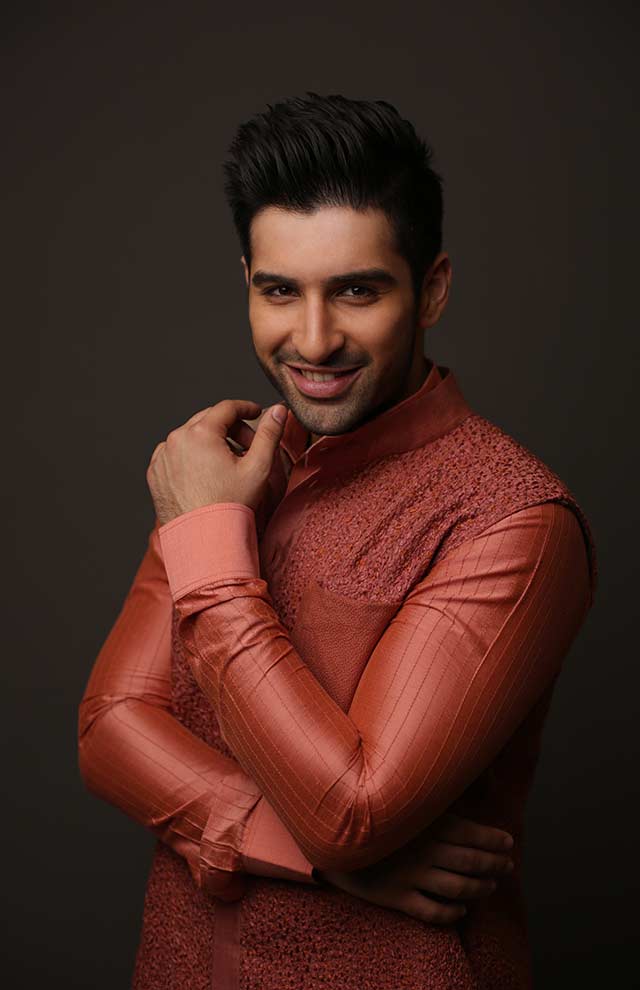 Muneeb Butt has had his share of struggles in the past but they have only made him stronger by the day. Hailing from Karachi, this young man promises to offer us inimitable performances. He took on a villainous role in Kaisa Hai Naseeban to enlighten viewers about marital abuse in our society, and currently stars in the dramatic play Yaariyan. Driven to perform, Muneeb hopes to be an asset to Pakistan’s thriving media industry.
Muneeb Butt has had his share of struggles in the past but they have only made him stronger by the day. Hailing from Karachi, this young man promises to offer us inimitable performances. He took on a villainous role in Kaisa Hai Naseeban to enlighten viewers about marital abuse in our society, and currently stars in the dramatic play Yaariyan. Driven to perform, Muneeb hopes to be an asset to Pakistan’s thriving media industry.
“I want to be the best version of myself”
How would you describe yourself?
Muneeb Butt: Enthusiastic, creative and motivated to work hard. A mixture of these three traits make up Muneeb Butt (Laughs).
Share five facts about yourself.
MB: 1. I always wanted to be a cop.
2. I started my career as a commercial model.
3. An actor replaced me because the director said that I could not act.
4. I received 5000 rupees a day for my first acting job.
5. When no opportunity came my way in the beginning of my career, I decided to quit and work as a media planner. I came back to the industry and ended up leaving the job.
How has your acting journey been so far?
MB: My acting journey has been amazing so far. I plan to play different characters, and not just chocolate-boy type roles. I want to explore myself as an actor as much as possible and portray characters different from the ones I have played in the last two years.
For a performer, is any role big or small?
MB: Honestly speaking, no role is big or small. Yes, it is a fact that your character must have some margin to perform. A good actor can make a small role stand out but if the story itself has nothing to offer, even the performer can’t do anything about it!
Your drama Kaisa Hai Naseeban concluded recently and has gained immense fan following. Looking back, what attracted you to this project the most? In your view, why was marital abuse so important to shed light on?
MB: Marital abuse exists in Pakistan. Many men I know consider their wives as their property. They think they can use and abuse them however they want. The content was compelling and so was the theme of the drama. The topic needed to be addressed because it was necessary to make people understand that marital abuse is wrong. I was associated with the ‘good boy’ image for so long that I wanted to act outside my comfort zone. My character was an antagonist but I broadened my acting canvas with Ahmed’s role. The subject is strong for those families who think their daughters are living abroad happily. It sends across a powerful message to the parents to run thorough background checks of families before marrying off their daughters.
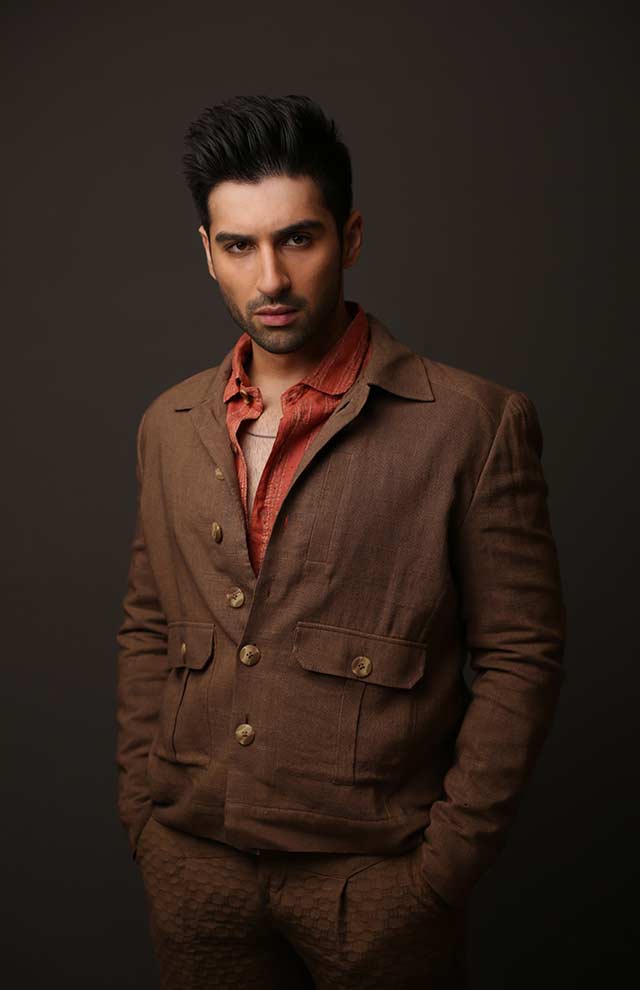
Do you enjoy playing unlikeable characters?
MB: I love playing unlikeable roles. It is fun to portray a gangster, politician or even an artist.
How does an actor distinguish between two opposite roles? What qualities are considered?
MB: It is the job of an actor to distinguish between two roles. I never shoot two dramas simultaneously because you are consumed by one role completely and it may reflect somewhere in the other drama. What I do is, I work on one project wholeheartedly and sign the next later. For a new character, you require concentration, hard work and creation. As an actor, I transitioned from Wali to Ahmed with a fresh mind. It was easier that way.
“Is it bragging if I travel abroad and upload a few photos of myself? Not at all! It is my life and I should live it to the fullest.”
After giving back-to-back acclaimed performances, what are some of the new ventures you are a part of?
MB: No matter how many characters you play, it becomes a challenge to diversify future roles. Making them impactful is tough, too! So far, I have essayed the part of a cop in Baandi, a sweet young man in Koi Chand Rakh and a violent villain in Kaisa Hai Naseeban. I have attempted to develop my character in the new play Yaariyaan. You can judge my performance and tell better if I have proven myself in that role or not.
What kind of roles do you wish to see yourself doing?
MB: Personally speaking, I like performing intense romantic scenes, like my character Umair in Koi Chand Rakh. Sometimes it is important to play diverse roles so people know that your acting canvas is not limited.
Which performance deeply affected you personally, perhaps even changed you permanently?
MB: My character in Baandi really affected me personally. I learned a lot from Wali. He fought for justice and the right cause. If anyone robs a person of his or her right, you should side with the victim, not the culprit. God is content with people who take care of his people.
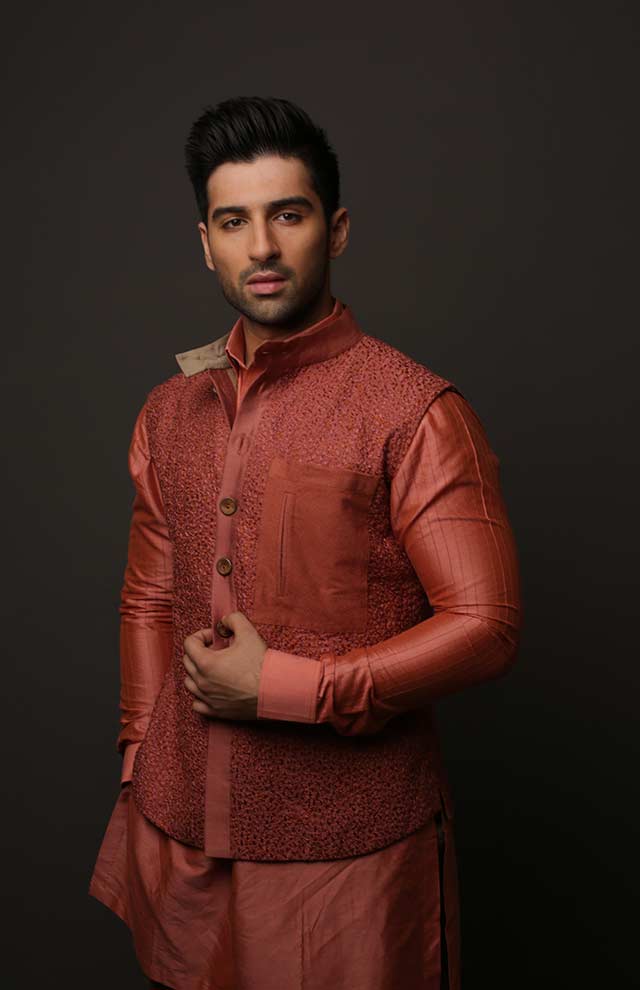
What is so challenging about bringing a good script to life?
MB: Everyone has to contribute an important part in the process. It is not just about one character but the whole story. If you are talking about bringing a good performance to life, it is necessary to consider how that character talks, looks and dresses. During Baandi, I spent two to three days with SOPs. I read them as subjects and observed their antics. Through observation, you can create a visual of that person and bring him to life.
Which director would you like to work with but haven’t yet?
MB: I hope to work with Badar Mehmood, Mehreen Jabbar, Haseeb Hassan and Ahson Talish in the future.
What makes a good co-star?
MB: A good co-star for me is a good performer, someone with the right attitude, who is punctual – which I am not (Laughs) – and a positive human being. If an actor thinks negatively, it affects the environment on the set.
Describe your spouse Aiman Khan.
MB: I have no words to describe her. She is a beautiful human being and a beautiful soul. Aiman is an amazing life partner to have. Luckily, we belong to the same industry so we understand each other.
What is your goal for this year?
MB: I want to be the best version of myself. I feel the need to work harder, enjoy my life, travel the world with my wife, and stay happy and satisfied.
Do you enjoy travelling?
MB: I love travelling around the world! I recently embarked on a trip to seven countries, and ten destinations. Before that, I toured Canada and Malaysia. Travelling gives you exposure; you get to interact with people and learn from them and their culture.
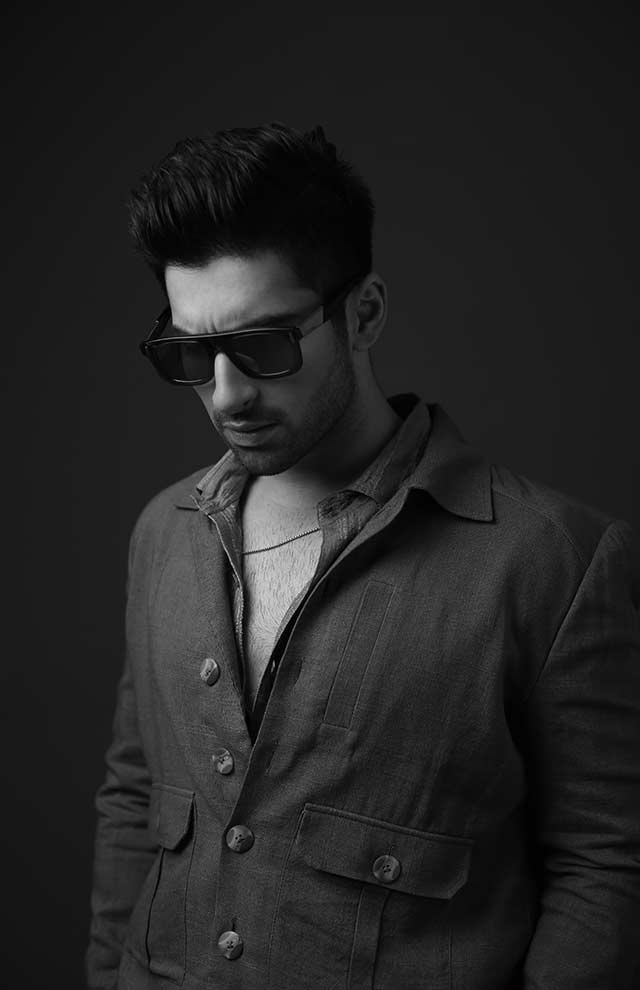
You posted a photo on tour a while ago that gained some public attention. You quoted, ‘I hear them talking behind my back; at least there is a reason why they are behind.’ What made you say this?
MB: During the trip, many actors and other people commented, “Oh, the couple is showing off!” Is it bragging if I travel abroad and upload a few photos of myself? Not at all! Some actors even said, “That is enough! You are boasting a lot and it will upset many people!” Quite a few celebrities expressed their thoughts that I found offensive. It is my life and I should live it to the fullest. I enjoy myself and like to post my own photos. I couldn’t comprehend why people were acting this way out of sheer jealousy. It felt like my enjoyment was somehow hurting them. I won’t take names as they are famous actors but I made it clear to myself, let them say what they want to say. If my photos cause them any discomfort, they can simply unfollow me.
“I was associated with the ‘good boy’ image for so long that I wanted to act outside my comfort zone.”
What is your ideal weekend like?
MB: Your sincere friend is your family, so I spend my weekend with them.
What annoys you the most about people?
MB: People who spread hate on social media. They unleash their inner frustration on either Facebook or Instagram. That really upsets me! If Aiman and I are happy, learn to be a part of our happiness. People are so vile in their comments. They unnecessarily denigrate us and just can’t stand our joy.
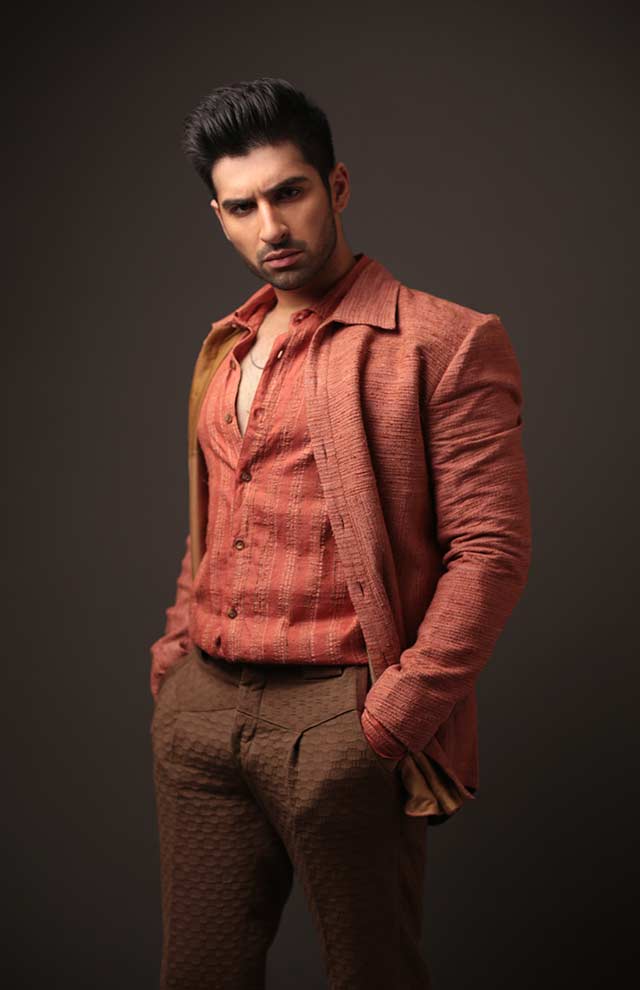
A habit you wish you could change?
MB: I have a habit of waking up late! I am not a morning man. I will try to be this year!
How do you battle hate mail?
MB: Ignoring hate mail is the best response. However, if you do comment or retaliate, you will be the center of needless attention.
INTERVIEW: HAIDER RIFAAT
Photography: Shahbaz Shazi
Grooming: Nadeem William -Alist Salon
Styling: Rao ali khan
Wardrobe: Kunal Anil Tanna![]()









































